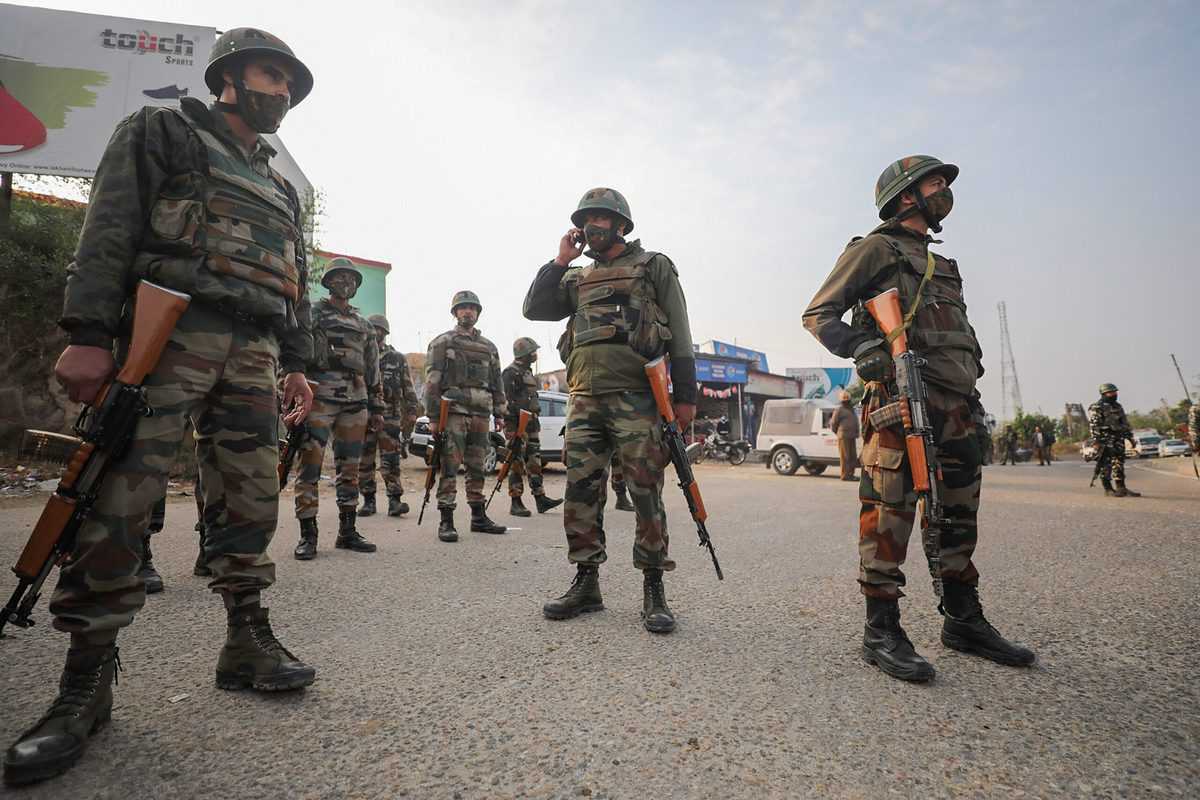
The recommendation of a General Court Martial inquiry into the Amshipora encounter in south Kashmir’s Shopian district in July 2020, to life imprisonment for a captain and two other soldiers, needs to be understood in a wider case than what fits in the crime and punishment phrase. This has to be placed and understood in the overall history of the landscape of the valley which has been witnessing militancy ad counter-insurgency operations, now almost for 33 years. It should wake up the government and the army to have a fresh look at the counter-insurgency operations, in which the army uses its powers in a fair manner so that no innocent is harmed fatally or otherwise.
On the face of it, the GCM has found Captain Bhoopendra Singh and two other army personnel guilty of staging an encounter in Amshipora, Shopian on July 18, and killing three civilians, passing them off as terrorists. It has recommended life imprisonment for the three army personnel guilty of the crime. This story neither began with Amshipora nor it would end with the recommendations of the GCM as it opens many questions that remain unanswered.
First, what was the motivation for the army personnel to stage the staged encounter, which has been proved beyond any doubt by a set of inquiries: J&K police and summary of the court of inquiry instituted by the army in September 2020 had found that the gunbattle in which three young men from Rajouri district who had come looking for job in Shopian was fake. The three young men – Abrar Ahmad, 25, was the oldest, two others Imtiyaz Ahmed ( 20) and Mohammad Abrar, 16, were the younger ones, were shot dead in an isolated house in Shopian.
It was not that the soldiers were trigger happy or they killed the three young men from Rajouri in case of mistaken identity. There is a reward for killing “terrorists”. This reward system was announced by the government to encourage the anti-insurgency forces in Kashmir to take risks to neutralize militants. This was in pursuit of a strategy to instill fear among the militants that wither they surrender or face elimination, and also to enhance the domination posturing of the forces. This cash reward plus the promotion prospects made them to go in for the kill, sometimes by staging fake encounters. Amishipora “ fake encounter” was not the first. There is a litany of such clashes, some proven, others not, action was taken in few cases, others were found to be part of the pro-militancy rumour-spreading machinery, the purpose of which was to put the forces on backfoot.
Some commentators have welcomed the GCM ‘s recommendations, saying it depicts the transparent and accountable working of the army and that it will ensure sense of justice among the people who were agitated by the fake encounters. There, however, is a larger question that how to ensure responsible way of acting in a volatile situation like the one Kashmir has gone through because of unacceptable incidents like these. Such “ encounters” not only besmirch the reputation of the army but also raise questions about the special powers that it has as shield against the legal action for their acts of omission and commission.
Interestingly, the summary of the court of inquiry instituted by the army soon after the incident raised hue and cry, and it was established that the three victims had no baggage of terrorism, had said that Captain Bhoopendra Singh and two others had violated the code of the Armed Forces Special Powers Act. It was owing to the public outrage that Lieutenant Governor Manoj Sinha visited the families of the victims, consoled them. He had handed over cheques to them as well, which firmly established the innocence of the victims.
The question about the misuse of the special powers under AFSPA cannot be done way with easily. There needs to be a review of the situation, and accordingly, a mechanism should be worked out need of special powers and the situation. By the government and army’s own account, the situation in Jammu and Kashmir has improved considerably. There has been a substantial decline in the number of terror incidents and killings- the militants are getting killed at a rapid scale and an ecosystem of normalcy has started replacing terror and the fear that it generated. So to validate this claim, which of course is reflected on the ground, the GCM inquiry recommendations should be made the basis for changing the role of the army and the powers that it has in Kashmir.



